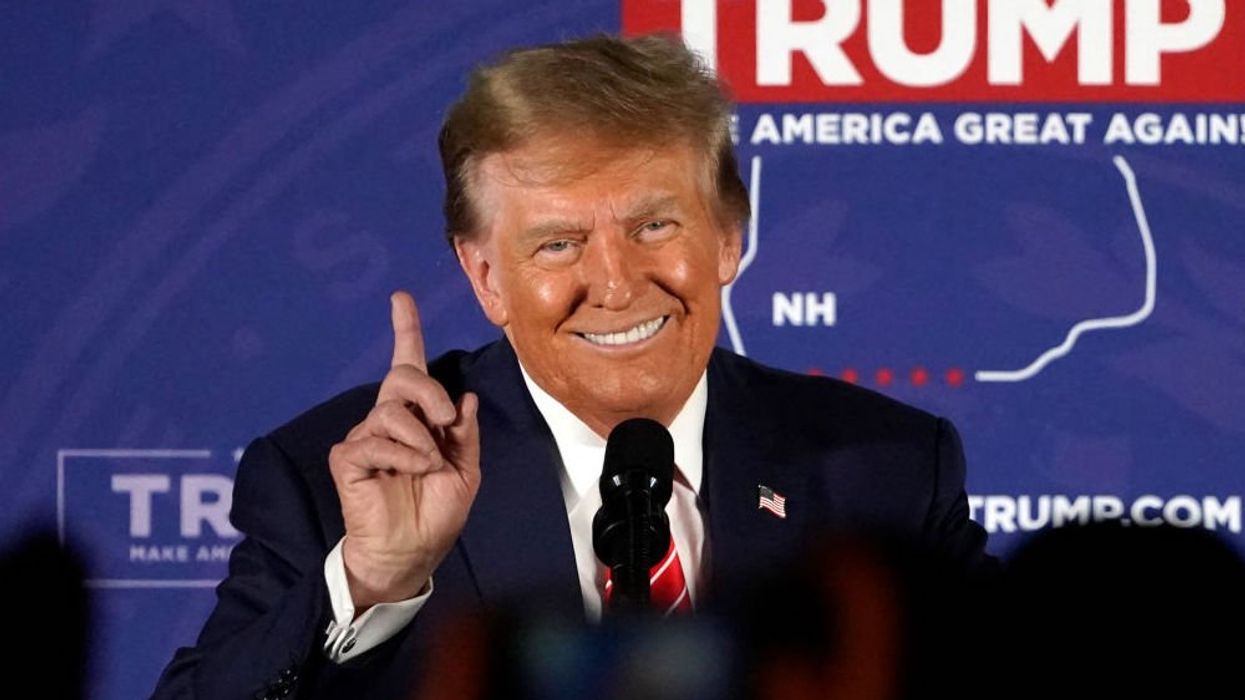
TIMOTHY A. CLARY/AFP via Getty Images

Constitutional scholar Jonathan Turley explained on Tuesday why the appeals court ruling against Donald Trump is not a total loss for the former president.
On Tuesday, the District of Columbia Court of Appeals rejected Trump's arguments that presidential immunity protects him from criminal prosecution in special counsel Jack Smith's election subversion case.
The three-judge panel explained:
For the purpose of this criminal case, former President Trump has become citizen Trump, with all of the defenses of any other criminal defendant. But any executive immunity that may have protected him while he served as President no longer protects him against this prosecution.
...
At bottom, former President Trump's stance would collapse our system of separated powers by placing the President beyond the reach of all three Branches. Presidential immunity against federal indictment would mean that, as to the President, the Congress could not legislate, the Executive could not prosecute and the Judiciary could not review.
The forceful ruling, while a loss for Trump, is not a total victory for Smith, according to Turley.
"The most practical impact of this appeal was indeed the delay that it caused. It was very important for the Trump team to try to push this trial back. They succeeded in doing that," Turley reacted on Fox News.
"The next stage here is that they can ask for review of the entire court — what’s called an en banc petition. That has to be reviewed and voted on even if they reject it, and that will take some time," he explained. "And then they will no doubt appeal to the Supreme Court, which now has a considerable stack on the desks of these justices, including election-related cases."
Smith originally requested Trump's trial begin in January, giving the president just five months to prepare for trial. Judge Tanya Chutkan rejected that request and said the trial would begin on March 4, one day before Super Tuesday.
But Chutkan finally acknowledged last week the trial will not begin on time, and pushed back its start back indefinitely. The trial was derailed when she originally rejected Trump's immunity arguments, which the president's lawyers appealed, thus stalling court proceedings.
Smith tried to prevent a trial delay by petitioning the Supreme Court to bypass the appeals court — arguing the "public interest" necessitates a speedy trial — but the Supreme Court rejected the request.
With the trial delayed and Trump left with two appeal options, it's becoming less likely the trial will be concluded by Election Day.
Like Blaze News? Bypass the censors, sign up for our newsletters, and get stories like this direct to your inbox. Sign up here!